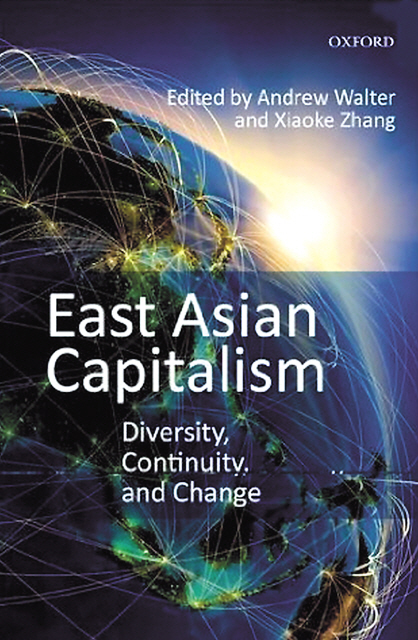
East Asian Capitalism: Diversity, Continuity, and Change
Edited by Andrew Walter and Xiaoke Zhang
(Oxford)
Two scholars recently compiled a collection of academic papers about East Asian capitalism and its evolving patterns against the backdrop of regional and global market integration and periodic economic crises since the 1980s.
The volume consists of a total of 12 writings on a variety of issues regarding capitalism in the region, focusing on China, Japan, South Korea, Indonesia, the Philippines, Malaysia, Taiwan and Thailand. For instance, Japanese scholar Wataru Takahashi explores Japan’s financial sector and its transition from high growth to the long crisis in the 1990s.
Meanwhile, Shaun Breslin writes about government-industry relations in China. “China’s economic system continues to evolve, and the situation is very different today from the form of state leadership that emerged from the initial transition from socialism in the 1980s,’ “Breslin writes.
“Increasingly, China seems to share many of the features and the underlying goals of national systems of political economy ― not only the capitalist developmental states of post-war Asia but also early forms of strong state-led projects like the American system of the 1820s, in Germany under Bismarck, and in post-Meiji Japan.”
The book provides an comprehensive, interdisciplinary overview of how changing institutional practices in business and labor systems affect the evolution of capitalist economies in Asia.
Its co-editor Xiaoke Zhang is a professor at the Manchester Business School, University of Manchester. His research interests are comparative political economy, with a regional focus on East Asia. His recent publications include “The Political Economy of Capital Market Reforms in Southeast Asia” and “International Financial Governance under Stress.”
Andrew Walter serves as a research associate in the department of management at the London School of Economics and Political Science.
(
jbwoo@heraldcorp.com)








